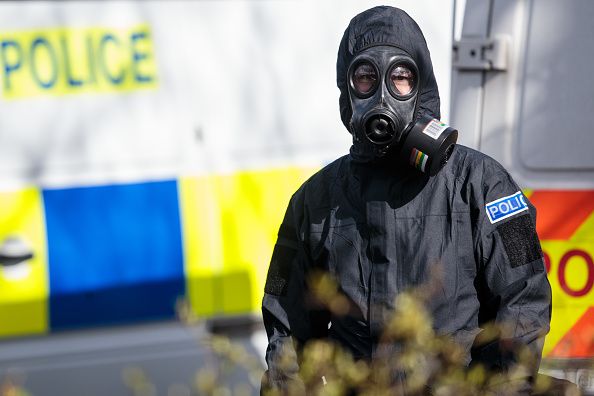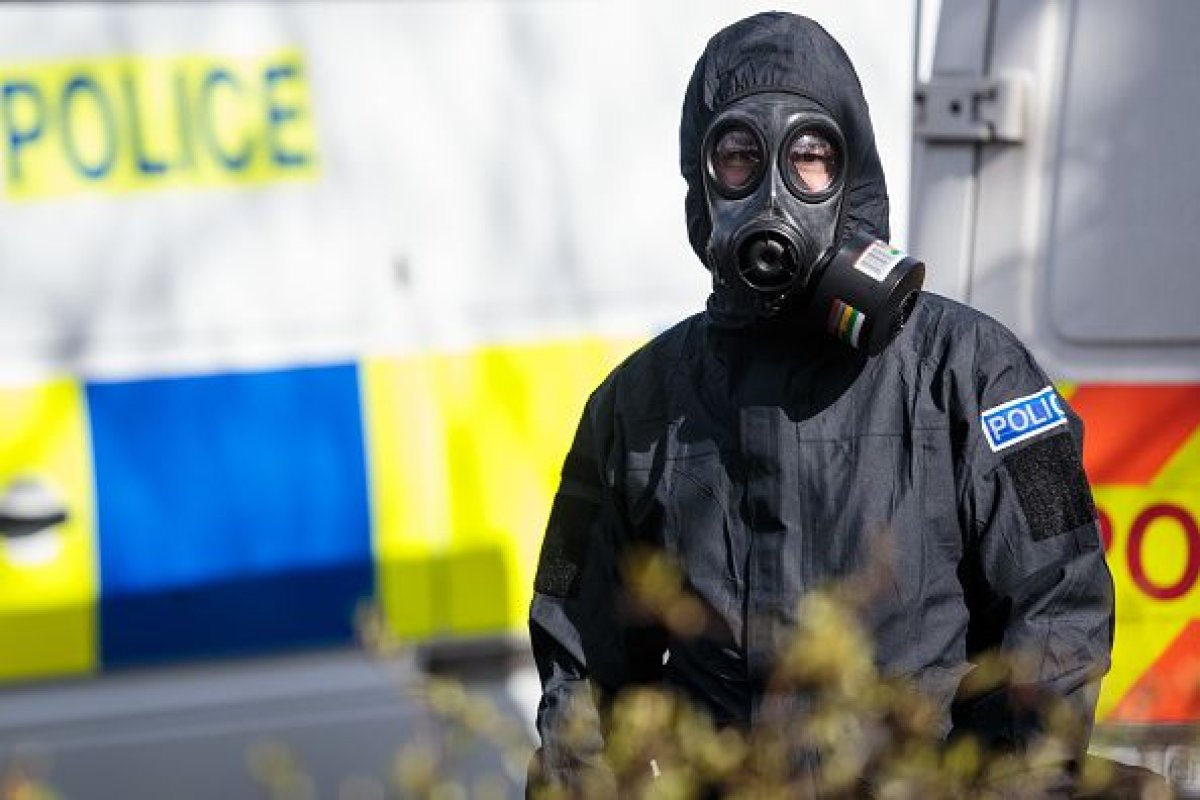
Researchers from the investigative reporting group Bellingcat have discovered a third member of the Russian military intelligence who they claim was involved in the poisoning of a Russian former double agent and his daughter in the United Kingdom.
What's more, the group says that the individual, who goes by the alias Sergey Vyacheslavovich Fedotov, may have been involved in a separate poisoning incident in a European Union country.
"Sergey Fedotov was first identified as a person of interest by the Russian news outlet Fontanka," Bellingcat's Investigative team said in a new report. "Bellingcat and its investigative partner The Insider (Russia) have traced Fedotov's prodigious travel itinerary since his cover identity was created in 2010 until his last overseas trip to London in March 2018. Over these eight years, 'Fedotov' traveled extensively in Europe, Asia and the Middle East, often appearing in hot spots just days before news-making events," the report continues.

In one such case, the alleged Russian agent traveled to Bulgaria, a formerly communist Warsaw Pact country that is now a member of the European Union and the North Atlantic Treaty Organization, around the same time that Bulgarian executive Emilian Gebrev, his son, and a business partner all exhibited symptoms of severe poisoning.
Researchers at Bellingcat said that Fedotov's travel patterns were similar to his movements in and out of the United Kingdom around the time that Sergei Skripal, a former Russian double agent, and his daughter were poisoned with a Soviet-era nerve agent in the English city of Salisbury.
The British government has determined that two members of the Russian military intelligence named Anatoliy Chepiga and Alexander Mishkin were responsible for poisoning the Skripals. Both the U.K. and the U.S. have sanctioned Russia over the incident.
"The events surrounding 'Sergey Fedotov's trips to Bulgaria closely match the pattern of his trip to and from the United Kingdom at the time of the Skripal poisoning," Bellingcat writes.
"Fedotov arrived to London on a flight from Moscow on the same day as the other two GRU officers—these would be Col. Chepiga and Dr. Mishkin—albeit on a different flight. He was scheduled to fly back in the afternoon of March 4, 2018, the day on which the Skripals, both father and daughter, fell ill in Salisbury. However, like in Bulgaria, he did not take the return flight, checking himself out of the airplane several minutes before departure time. Instead, he flew back to Moscow from another European capital a few days later," the report continues.
The case of Grebrev's poisoning is currently under investigation in Bulgaria. Gebrev told Bellingcat that he did not know why he was poisoned, but that the incident may be related to the fact that his company, Dunarit, manufactures defense equipment that is sold to Ukraine, where Russia is supporting armed separatists.
Atanas Chobanov, an investigative reporter from Bulgaria, told Newsweek that his reporting suggests that a Bulgarian media mogul named Delyan Peevski, who has ties to Russian intelligence agents, wanted to take over the company, Dunarit, so he could control Bulgarian arms sales to Ukraine.
"The lawyer of the local oligarch, Delyan Peevski, is the ultimate beneficial owner
of an offshore company that is disputing Gebrev's ownership of Dunarit, the
arms manufacturer exporting weapons for Ukraine," Chobanov told Newsweek.
Peevski's lawyer, a man named Alexander Paraskevov Angelov, has ties to the remnants of the Bulgarian intelligence services who were closely aligned with the KGB during the Soviet era, according to Bulgarian media reports.
"The version that GRU used Bulgarian former KGB networks to eliminate Gebrev as a source of annoyance in the Ukraine war is very plausible in my understanding," Chobanov added. "My take is that there are converging interests of GRU and the Bulgarian oligarchs to take over Dunarit arms producer."
Peevski also has financial ties to VTB Bank, the Russian bank that agreed to finance Trump Tower Moscow.
Uncommon Knowledge
Newsweek is committed to challenging conventional wisdom and finding connections in the search for common ground.
Newsweek is committed to challenging conventional wisdom and finding connections in the search for common ground.
About the writer
Cristina Maza is an award-winning journalist who has reported from countries such as Cambodia, Kyrgyzstan, India, Lithuania, Serbia, and Turkey. ... Read more
To read how Newsweek uses AI as a newsroom tool, Click here.








